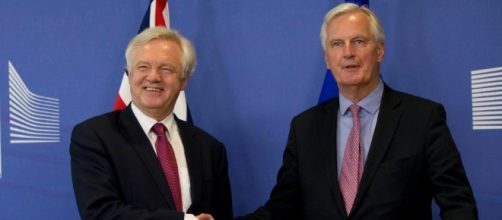David Davis is in an unenviable position. The Prime Minister has tasked him with the job of organising the most significant constitutional shift this country has witnessed since 1688; Brexit. Whoever was awarded with this position was never going to find it easy and leaving the EU was not intended to be a simple task either. But under these circumstances, the Brexit Secretary is doing a better job than many commentators have provided him with credit for so far.
A foolish error that demonstrated David Cameron's failure to grasp reality
Prior to the EU Referendum, the Department for Exiting the EU never existed.
Theresa May's predecessor, David Cameron, never established any contingency plans in preparation for the likely event of Brexit. This was a foolish error that demonstrated the former prime minister's failure to grasp reality. Whilst engaging in a desperate struggle to recruit sufficient numbers of civil servants able to arrange the UK's EU exit, Mr. Davis and his formidable team, which includes Brexit Minister Robin Walker, were under pressure from a public eager to see the will of the people being implemented quickly and a timetable prepared by Mrs May to trigger Article 50 by March this year.
Facing considerable cross-party opposition, the Brexit Secretary's plans were disrupted by the Prime Minister's decision to call a general election to silence her opponents.
Sadly that call backfired and the Conservatives failed to achieve a majority, thereby weakening her hand in her discussions with Brussels. This has allowed many centrist Tories to try and water down Mr. Davis' plans, with notable figures like Ruth Davidson, William Hague and the spineless David Cameron urging him to consider the option of a "soft" Brexit.
An attempt to appease both the Tory Europhiles and Brussels
He has also encountered opposition from the EU's Chief Negotiator, Michel Barnier, who has stubbornly resisted Britain's proposals over the divorce bill, citizens' rights and Ireland. Yesterday's offer of a transitional customs union was an attempt to appease both the Europhiles lurking in the Conservative Party and Brussels.
Yet the latter has dismissed these plans altogether, showing they have no desire to provide the UK with a simple free trade agreement. Brussels' hypocrisy knows no bounds.
For these reasons, Mr. Davis deserves a lot more credit than he receives. He is trying to achieve the impossible and very few politicians are making his life easy.

